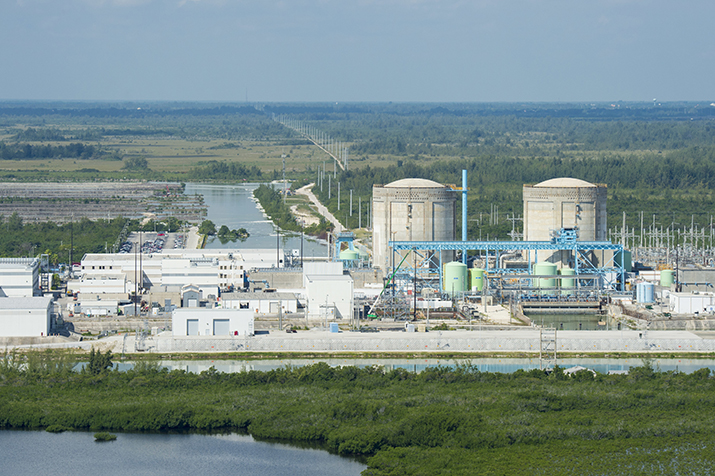Turkey Point licence extension; EDF and Veolia tackle graphite decommissioning
Our pick of the latest nuclear power news you need to know.

Related Articles
Turkey Point approved for operating licence extension up to 80 years
The US Nuclear Regulatory Commission (NRC) has approved Florida Power & Light's (FPL) application for a 20-year licence extension for Turkey Point units 3 and 4.
This is the first time that the regulator has issued licences authorising reactors to operate for up to 80 years.
The two pressurised water reactors have been in commercial operation since 1972 (unit 3) and 1973 (unit 4) and were initially licensed to operate for up to 40 years.
In 2002, NRC issued renewed licences for a further 20 years of operation for each unit. FPL submitted a subsequent licence renewal application for a further 20 years on 30 January 2018. Turkey Point 3's subsequent renewed licence expires on 19 July 2052, and unit 4's on 10 April 2053.
“The rationale for the NRC's decision is documented in the staff’s July 2019 final Safety Evaluation Report on the application, as well as the staff's October 2019 final Supplemental Environmental Impact Statement. The NRC's Advisory Committee on Reactor Safeguards also reviewed the safety aspects of renewing the licences,” the regulator said.
Licence renewals beyond 60 years of operation focus on the management of plant ageing during the 60-80 year operating period, especially the effects of extended operation and high radiation exposure on reactor parts, concrete containment structures, piping and electrical cables, among other things, according to NRC.
The NRC is reviewing applications for subsequent licence renewals from Dominion Energy for Surry 1 and 2 and Exelon for Peach Bottom 2 and 3, while Dominion has formally notified the regulator it intends to apply for a subsequent licence renewal for North Anna 1 and 2.
According to the US Department of Energy, some 20 reactors are planning or intending to operate up to 80 years, with more expected to apply as they get closer to the end of their operating licences.
EDF and Veolia combine to tackle graphite reactor decommissioning
EDF and Veolia, through respective subsidiaries Cyclife Holding and Asteralis, have created joint entity Graphitech to tackle the challenges of decommissioning nuclear reactors that incorporate graphite technology.
Globally, only two reactors of small power graphite technology have been dismantled to date.
Graphitech will be responsible for the technological development and engineering studies required in preparation for decommissioning graphite nuclear reactors, which number around 60 in countries including France, the UK, Spain, Italy, Lithuania and Japan.
Graphitech will combine EDF’s nuclear expertise with Veolia’s nuclear-environment robotics capability to design specialized machinery and long-distance intervention platforms for decommissioning. Specifically, Graphitech will develop remote-operation tools to break up complex, large-scale structures, tools to extract activated graphite bricks and piles, plus design systems and articulated arms to enable deployment of these tools.
Graphitech will first provide assistance to EDF for decommissioning the Chinon A2 reactor in 2028. This program will begin in 2022 with a development and qualification phase using full-scale models to prepare the remote-operation tools to be used in the Chinon reactor.
Terrestrial Energy’s ISMR selected for joint review by CNSC and NRC
The Canadian Nuclear Safety Commission (CNSC) and the US Nuclear Regulatory Commission (NRC) have selected Terrestrial Energy’s Integral Molten Salt Reactor (ISMR) for the first joint technical review of an advanced, non-light water nuclear reactor technology.
The selection of Terrestrial’s IMSR follows the August 2019 Memorandum of Cooperation (MOC) between the CNSC and the NRC that expands the agencies’ cooperation on advanced reactor and SMR technologies.
 Terrestrial’s IMSR is an advanced reactor employing Generation IV molten salt technology with a power output of 195 MWe. It is currently the subject of regulatory engagement in both Canada and the US.
Terrestrial’s IMSR is an advanced reactor employing Generation IV molten salt technology with a power output of 195 MWe. It is currently the subject of regulatory engagement in both Canada and the US.
The IMSR is currently the only advanced reactor in Phase 2 CNSC’s Vendor Design Review (VDR).
Nuclear Energy Insider
